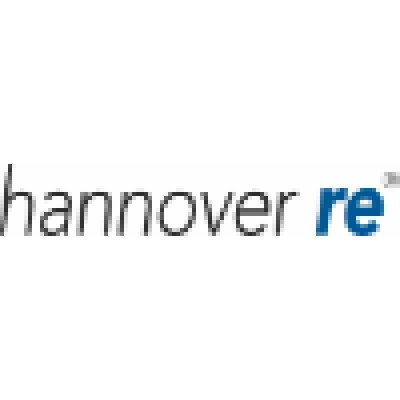Allianz Takes the Helm: A $3.8 Billion Bet on Viridium
March 15, 2025, 4:49 am
In the world of finance, big moves create ripples. The latest wave comes from Allianz, a titan in the insurance sector. They are on the brink of acquiring Viridium Group, Germany's largest life insurance administrator, in a deal worth €3.5 billion, or approximately $3.8 billion. This transaction, orchestrated by Cinven, marks a pivotal moment in the insurance landscape.
Cinven, a private equity firm based in London, has held the reins of Viridium since 2013. Under its stewardship, Viridium has transformed into a formidable player in the closed-book life insurance market. This sale represents a significant exit strategy for Cinven, which has been consolidating life insurance portfolios across Europe. The deal is not just a financial transaction; it’s a strategic maneuver that reshapes the competitive landscape.
The consortium backing Allianz is a heavyweight lineup. It includes BlackRock, the U.S. asset management giant, Japanese insurer T&D, and Italian firm Generali, which already owns a 10% stake in Viridium. Each player brings unique strengths to the table, creating a diversified powerhouse poised to tackle the challenges of the insurance market.
Hannover Re, a co-founder of Viridium alongside Cinven, is also part of this narrative. The reinsurer is expected to divest its stake, either partially or fully. However, Hannover Re has reassured stakeholders that this sale will not significantly impact its earnings. This statement reflects a calculated approach to risk management, a hallmark of the insurance industry.
The timing of this acquisition is crucial. The insurance sector is undergoing a transformation. With increasing regulatory pressures and changing consumer expectations, companies must adapt or risk obsolescence. Allianz’s move to acquire Viridium is a proactive step in this evolving landscape. It signals a commitment to growth and innovation, positioning Allianz as a leader in the life insurance space.
The implications of this deal extend beyond mere numbers. It highlights a trend of consolidation within the insurance industry. As companies seek to streamline operations and enhance profitability, mergers and acquisitions become a common strategy. This deal is a testament to that trend, showcasing how larger firms are absorbing smaller players to fortify their market positions.
For Allianz, acquiring Viridium is more than just expanding its portfolio. It’s about harnessing Viridium’s expertise in managing closed-book life insurance policies. These policies, often inherited from other companies, require specialized management to ensure profitability. Allianz aims to leverage Viridium’s capabilities to enhance its operational efficiency and customer service.
The consortium’s diverse composition also suggests a strategic approach to risk diversification. By pooling resources and expertise, Allianz and its partners can navigate the complexities of the insurance market more effectively. This collaboration could lead to innovative solutions that benefit policyholders and shareholders alike.
As the deal approaches finalization, industry observers are keenly watching the developments. The insurance market is rife with uncertainty, and this acquisition could set the tone for future transactions. Will other firms follow suit? Will we see more alliances forming in response to market pressures? The answers remain to be seen.
In the broader context, this acquisition reflects a shift in how companies view growth. It’s no longer just about organic expansion. Strategic partnerships and acquisitions are becoming essential tools for survival. Companies must think beyond their borders and seek opportunities that align with their long-term goals.
The Viridium acquisition also underscores the importance of adaptability. The insurance industry is not static; it evolves with the times. Companies that can pivot quickly and embrace change will thrive. Allianz’s move is a clear indication of its willingness to adapt and innovate.
Moreover, this deal has implications for policyholders. As Allianz integrates Viridium’s operations, customers can expect enhanced services and potentially better policy offerings. The focus on closed-book life insurance management could lead to improved outcomes for those holding such policies.
In conclusion, the impending acquisition of Viridium by Allianz is a significant event in the insurance sector. It’s a strategic play that reflects broader trends in consolidation and adaptation. As the deal unfolds, the industry will be watching closely. The outcome could shape the future of life insurance in Europe and beyond. Allianz is not just buying a company; it’s investing in a vision for the future. This deal is a reminder that in the world of finance, fortune favors the bold.
Cinven, a private equity firm based in London, has held the reins of Viridium since 2013. Under its stewardship, Viridium has transformed into a formidable player in the closed-book life insurance market. This sale represents a significant exit strategy for Cinven, which has been consolidating life insurance portfolios across Europe. The deal is not just a financial transaction; it’s a strategic maneuver that reshapes the competitive landscape.
The consortium backing Allianz is a heavyweight lineup. It includes BlackRock, the U.S. asset management giant, Japanese insurer T&D, and Italian firm Generali, which already owns a 10% stake in Viridium. Each player brings unique strengths to the table, creating a diversified powerhouse poised to tackle the challenges of the insurance market.
Hannover Re, a co-founder of Viridium alongside Cinven, is also part of this narrative. The reinsurer is expected to divest its stake, either partially or fully. However, Hannover Re has reassured stakeholders that this sale will not significantly impact its earnings. This statement reflects a calculated approach to risk management, a hallmark of the insurance industry.
The timing of this acquisition is crucial. The insurance sector is undergoing a transformation. With increasing regulatory pressures and changing consumer expectations, companies must adapt or risk obsolescence. Allianz’s move to acquire Viridium is a proactive step in this evolving landscape. It signals a commitment to growth and innovation, positioning Allianz as a leader in the life insurance space.
The implications of this deal extend beyond mere numbers. It highlights a trend of consolidation within the insurance industry. As companies seek to streamline operations and enhance profitability, mergers and acquisitions become a common strategy. This deal is a testament to that trend, showcasing how larger firms are absorbing smaller players to fortify their market positions.
For Allianz, acquiring Viridium is more than just expanding its portfolio. It’s about harnessing Viridium’s expertise in managing closed-book life insurance policies. These policies, often inherited from other companies, require specialized management to ensure profitability. Allianz aims to leverage Viridium’s capabilities to enhance its operational efficiency and customer service.
The consortium’s diverse composition also suggests a strategic approach to risk diversification. By pooling resources and expertise, Allianz and its partners can navigate the complexities of the insurance market more effectively. This collaboration could lead to innovative solutions that benefit policyholders and shareholders alike.
As the deal approaches finalization, industry observers are keenly watching the developments. The insurance market is rife with uncertainty, and this acquisition could set the tone for future transactions. Will other firms follow suit? Will we see more alliances forming in response to market pressures? The answers remain to be seen.
In the broader context, this acquisition reflects a shift in how companies view growth. It’s no longer just about organic expansion. Strategic partnerships and acquisitions are becoming essential tools for survival. Companies must think beyond their borders and seek opportunities that align with their long-term goals.
The Viridium acquisition also underscores the importance of adaptability. The insurance industry is not static; it evolves with the times. Companies that can pivot quickly and embrace change will thrive. Allianz’s move is a clear indication of its willingness to adapt and innovate.
Moreover, this deal has implications for policyholders. As Allianz integrates Viridium’s operations, customers can expect enhanced services and potentially better policy offerings. The focus on closed-book life insurance management could lead to improved outcomes for those holding such policies.
In conclusion, the impending acquisition of Viridium by Allianz is a significant event in the insurance sector. It’s a strategic play that reflects broader trends in consolidation and adaptation. As the deal unfolds, the industry will be watching closely. The outcome could shape the future of life insurance in Europe and beyond. Allianz is not just buying a company; it’s investing in a vision for the future. This deal is a reminder that in the world of finance, fortune favors the bold.

